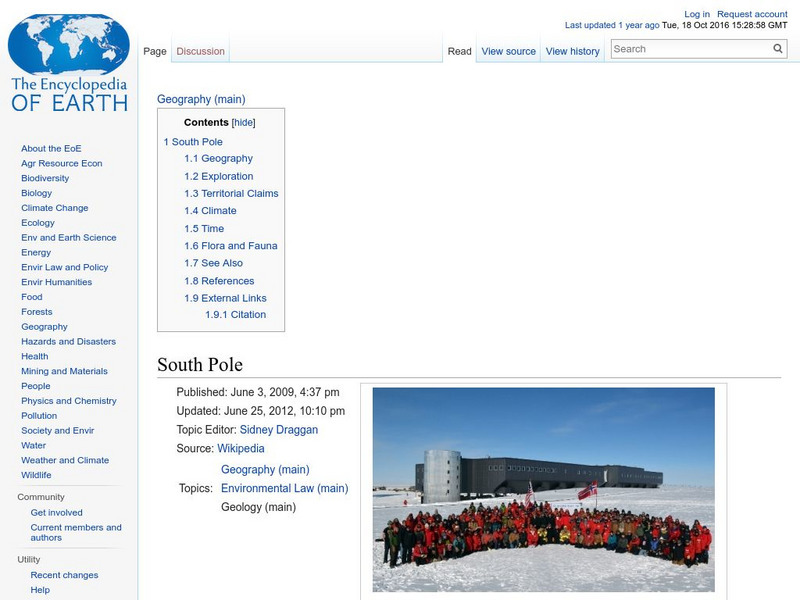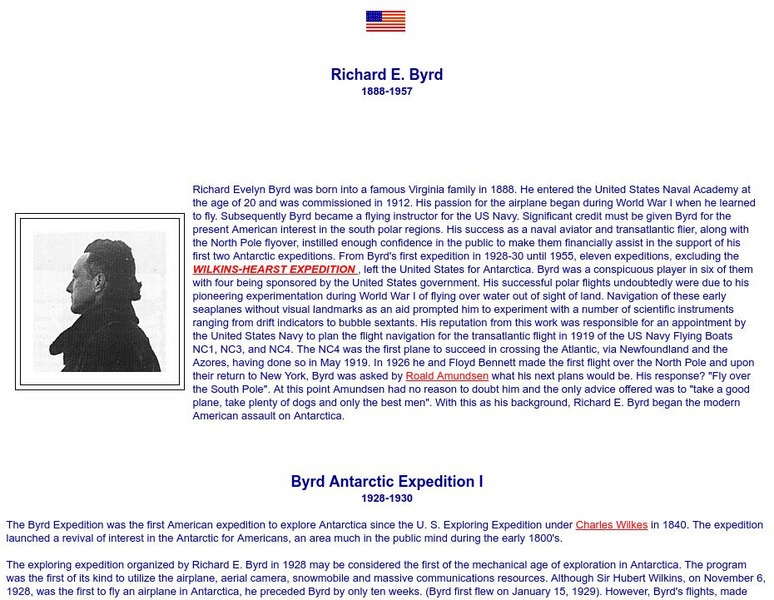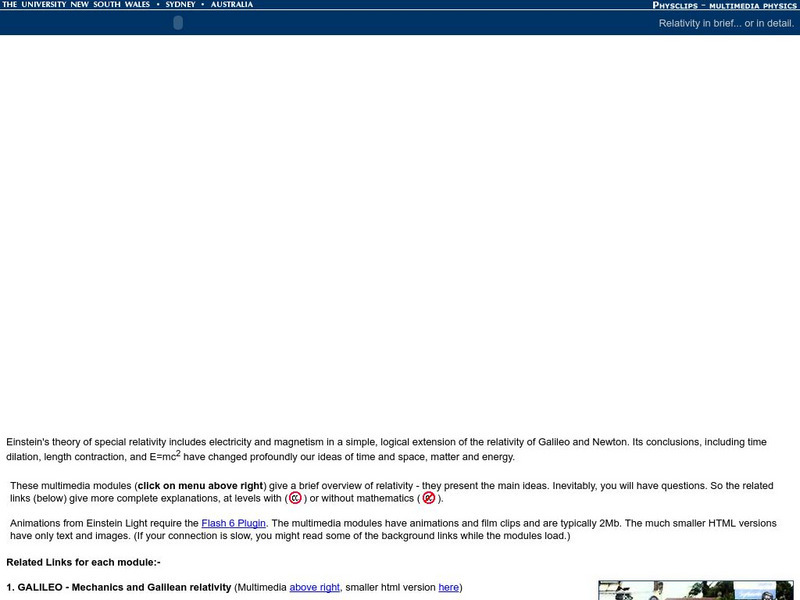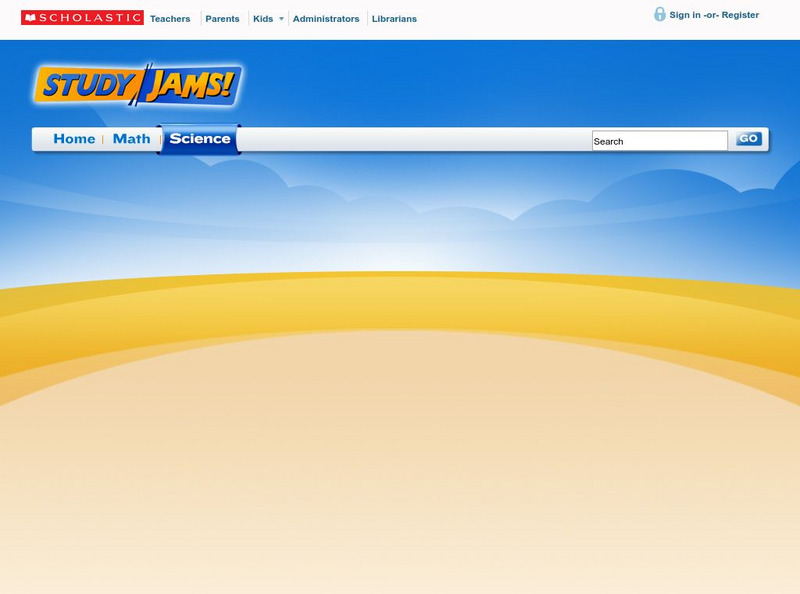National Science Foundation
National Science Foundation: u.s. South Pole Station
The resource explores the National Science Foundation's Amundsen-Scott South Pole Station. The interactive activity consists of a video tour, illustrations, related resources, and a webcam.
CNN
Cnn: Buzz Aldrin Evacuated From South Pole
Buzz Aldrin, a former astronaut who walked on the moon, was evacuated from the South Pole after his medical condition deteriorated, according to a release.
Other
South Pole: Roald Amundsen
This site is on Amundsen (1872-1928 CE), the leader of a Norwegian expedition, races Robert Scott's group to the South Pole.
Encyclopedia of Earth
Encyclopedia of Earth: Geography: South Pole
Information about the Geographic South Pole. Explains how it is defined, the marker (which must be adjusted each year due to ice movements) that identifies its location, and 'other' South Poles, i.e., the Ceremonial South Pole and the...
The Newberry Library
Newberry Library: Art and Exploration of the Poles
Resource with lesson and primary source documents examines the connections between exploration of the North and South Poles and their visual representation.
TED Talks
Ted: Ted Ed: The Dangerous Race for the South Pole
After two Americans staked claim to reaching the North Pole, a Norwegian explorer and a British naval officer each set out for the last unmapped region in what newspapers called a "Race to the Pole." Elizabeth Leane sets the scene for...
Australian Broadcasting Corporation
Australian Broadcasting Corporation: News in Science: Double Eye Vortex at Venus' South Pole
From ABC News in Science, this article explores findings related to the "double-eye vortex" discovered hovering above Venus' south pole.
Other
South Pole: Richard E. Byrd (1888 1957)
This article profiles Admiral Richard E. Byrd (1888-1957), the American naval officer and Antarctic explorer.
NASA
Nasa: Climate Kids: Polar Temperatures
What is it that maske the North and South Pole so different? Find out here when you learn about the climates of the poles
American Museum of Natural History
American Museum of Natural History: Race to the End of the Earth
Multimedia-rich exhibition documents the race, in 1911, to be the first to reach the South Pole. Two teams undertook the perilous journey, one British, led by Robert Scott, and one Norwegian, led by Roald Amundsen. With digital dioramas,...
Royal Geographical Society
Royal Geographical Society: Antarctica: Extreme Wilderness
Information, activities and images of Antarctica including a number from Scott's expedition to the South Pole.
Smithsonian Institution
National Museum of Natural History: Ocean Portal: Life at the Poles
The poles of the earth are often grouped together, however, they are very different. This article is a companion to the exhibit at the Smithsonian. You will learn about adaptations that organisms must make and ways that we affect the...
University of Wisconsin
The Why Files: Energy at the Earth's Poles
A resource to help understand how the amount of energy at the Earth's poles affects polar conditions.
Alabama Learning Exchange
Alex: The Equator and the Poles
This activity provides hands-on activities that will teach students about the poles and the equator. Students will be labeling a globe, recreating a globe within the classroom, and researching information on the Internet.
Woods Hole Oceanographic Institution
Polar Discovery: Compare the Poles
A detailed comparison of many aspects of the two polar regions. Includes physical features, seasons, weather, types of ice, plants and animals, human population, and climate change.
Other
Satellite Images Bridge Understanding Gap Between Climate Change and Individuals
This article discusses how Google Earth has brought the reality of climate change to the average person so that they can see it for themselves. The north and south poles are indicators of what is happening with climate change and an...
PBS
Nova: Magnetic Storms: When Compasses Pointed South
Earth's magnetic poles have reversed themselves throughout its long history. Find out what scientists know about these reversals. A geologic time line shows when the reversals occurred.
Other
The North Pole: Christmas Around the World
A look at how world countries celebrate the different traditions of the Christmas season.
ClassFlow
Class Flow: Parts of the Globe
[Free Registration/Login Required] This flipchart explores the vocabulary of studying the parts of the globe: north pole, south pole, equator, longitude, latitude, etc.
Other
Antarctic E Mail Social Studies Lesson
Why would you ever want to go to Antarctica? This lesson plan allows the students to imagine what life would be like at the bottom of the earth. The teacher can then e-mail the South Pole Observatory for answers to their questions.
University of New South Wales (Australia)
University of New South Wales: Einstein Light
Einstein Light highlights the Theory of Special Relativity and related topics. Learn how Galileo, Maxwell, and Einstein contributed to our knowledge of relativity, electricity, magnetism, and time by watching fun, interactive modules.
Scholastic
Scholastic: Study Jams! Science: Energy, Light and Sound: Magnetism
A slideshow and a short multiple-choice quiz on the basic concepts and vocabulary of magnetism.
TED Talks
Ted: Ted Ed: Lee Hotz: Inside an Antarctic Time Machine
In this video, Lee Hotz describes research into greenhouse gas emissions and global climate change taking place at the South Pole in Antarctica. [9:46] Includes a brief quiz and a list of additional resources to explore.
Other
Simple Science: Hole in the Sky
Learners explore images of atmospheric ozone levels over the South Pole. The resource has young scholars determine the months of lowest ozone levels and changes in ozone levels since 1979. The activity has an interactive online version...
Other popular searches
- North Pole South Pole
- Penguins South Pole
- Emperor Penguins South Pole
- North and South Poles
- 90 South Pole
- South Pole Place Near
- Santa in South Pole
- North Pole, South Pole
- The South Pole
- Emperor Penginns South Pole
- North Ans South Poles
- North South Poles




















